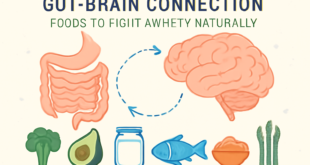
Introduction to Reproductive Medicine and Infertility (RMI)
Reproductive medicine has witnessed dramatic advancements during recent decades when it comes to infertility therapies. With specialties that focus on infertility disorders such as infertility, reproductive health and assisted reproduction technologies (ART), reproductive medicine specializes in diagnosing and treating disorders related to these areas. Reproductive medicine continues to offer practical answers that enable couples around the globe to start families once more; millions of couples worldwide suffer from infertility each year, so reproductive medicine strives for workable solutions which could potentially restore family formation; such causes could include anatomical issues with reproductive organs hindering reproduction or age related hormonal abnormalities which cause problems.
Medical Practitioners’ Roles in Fertility Treatment: Their Functions
Medical specialists who specialize in diagnosing, treating and managing infertility problems are known as infertility associates. Working closely with reproductive endocrinologists and other specialists, infertility associates help identify its source before creating customized treatment plans to offer hope to individuals suffering from infertility issues. Trained to offer comprehensive care including in-depth medical evaluations, treatments and emotional support – these experts play an invaluable role in providing individuals or couples facing this struggle assistance and relief.
Common Causes of fertility issues
Men and women may both suffer from infertility for different reasons; men may be affected by low sperm count or motility issues while female infertility could result from endometriosis or age-associated loss in egg quality. Advanced reproductive medical diagnostic technologies help pinpoint its source, so an effective course of therapy action against it may be developed.
Find Reproductive Medicine: Essential Techniques
Couples visiting reproductive medicine specialists typically undergo an in-depth diagnostic process. Blood tests, ultrasounds, hysterosalpingography–a technique meant to check fallopian tubes–menstruation analysis and hormone level tests may all form part of this evaluation process in order to detect any medical conditions that interfere with conception and provide tailored recommendations regarding treatments that might address them; once identified as potential causes for infertility they can then be tailored specifically.
Assisted Reproductive Technologies (ARTs) Are Revolutionizing Fertility Care
Assisted reproduction technologies (ART) have become one of the cornerstones of reproductive medicine over time. As IVF is one of the most successful fertility treatments, involving fertilizing eggs outside the body before transplanting fertilized embryos back into women’s uteri for further fertilization and gestation, assisted reproductive technology (ART) includes various techniques including in vitro fertilisation (IVF), intrauterine insemination (IUI), egg freezing and sperm donation. Many couples who were struggling to conceive have successfully become pregnant thanks to assisted reproductive technologies (ART), particularly IVF treatments available from fertility doctors; thanks to them many couples would otherwise struggle or fail at conception may now successfully get pregnant through IVF; many could never conceive otherwise!
Examining IVF and IUI Treatment Options
Women suffering from blocked fallopian tubes, old mother age or male infertility often turn to in vitro fertilisation (IVF) as one of their solutions for infertility. Fertilised eggs are then placed directly into their respective uteri after fertilization in a lab; alternatively intrauterine insemination (IUI) involves injecting sperm directly into the uterus and may increase chances of fertilisation – each technique has differing success rates so the best approach depends on each couple’s diagnosis of infertility diagnosis and infertility diagnosis.
Fertility Care Needs Emotional Support
Understanding infertility can often be emotionally taxing; emotional support for patients is therefore indispensable in reproductive medicine. Many infertility clinics provide counselling services in order to ease emotional strain caused by infertility treatments; many couples can feel disillusioned, depressed and hopeless as part of the fertility journey; having emotional support makes the experience less lonely and draining.
Reproductive Medicine at New Frontiers: Novelties at an Emergent Stage
Reproductive medicine has seen advances in genetic screening and embryo testing methods like preimplantation genetic testing (PGT), which allows doctors to screen embryos for genetic diseases before implanting, thus decreasing risks related to hereditary conditions being passed from generation to generation, reproductive medicine has seen remarkable advancement. Also, advances in fertility preservation – like egg and sperm freezing – allow people to postpone parenting or safeguard fertility due to medical issues while giving people options when postponing parenthood or maintaining fertility due to medical reasons.
Final Thought on Strategies to Drive Reproductive Medicine Success in 2016 and Beyond
As reproductive medicine and infertility associates transform fertility treatment, millions of individuals and couples worldwide now have hope. Reproductive medicine continues to advance by creating innovative solutions to infertility problems through diagnostic tools, assisted reproductive technologies (ART), emotional support services and emotional counselling to overcome any obstacles to conception. Advancements in science and technology also promise breakthroughs that enable more people to fulfill their ambitions of having families earlier; expanding treatment options with positive results while expanding possibilities to treat those living with infertility issues.
MOST RELATED: https://nutritionnest.site/wp-admin/post.php?post=587&action=edit
 healthybodyboost.net Healthy Body Boost
healthybodyboost.net Healthy Body Boost



